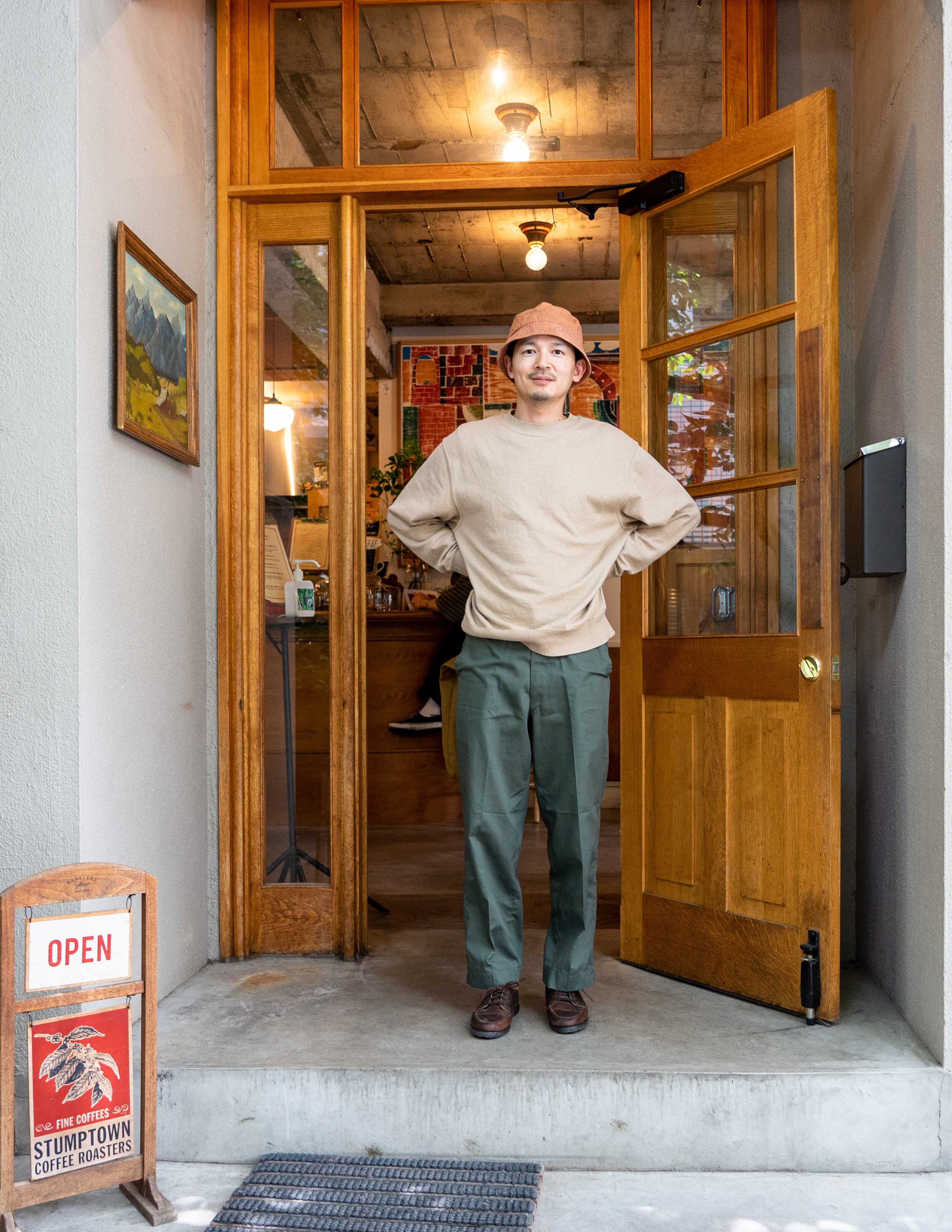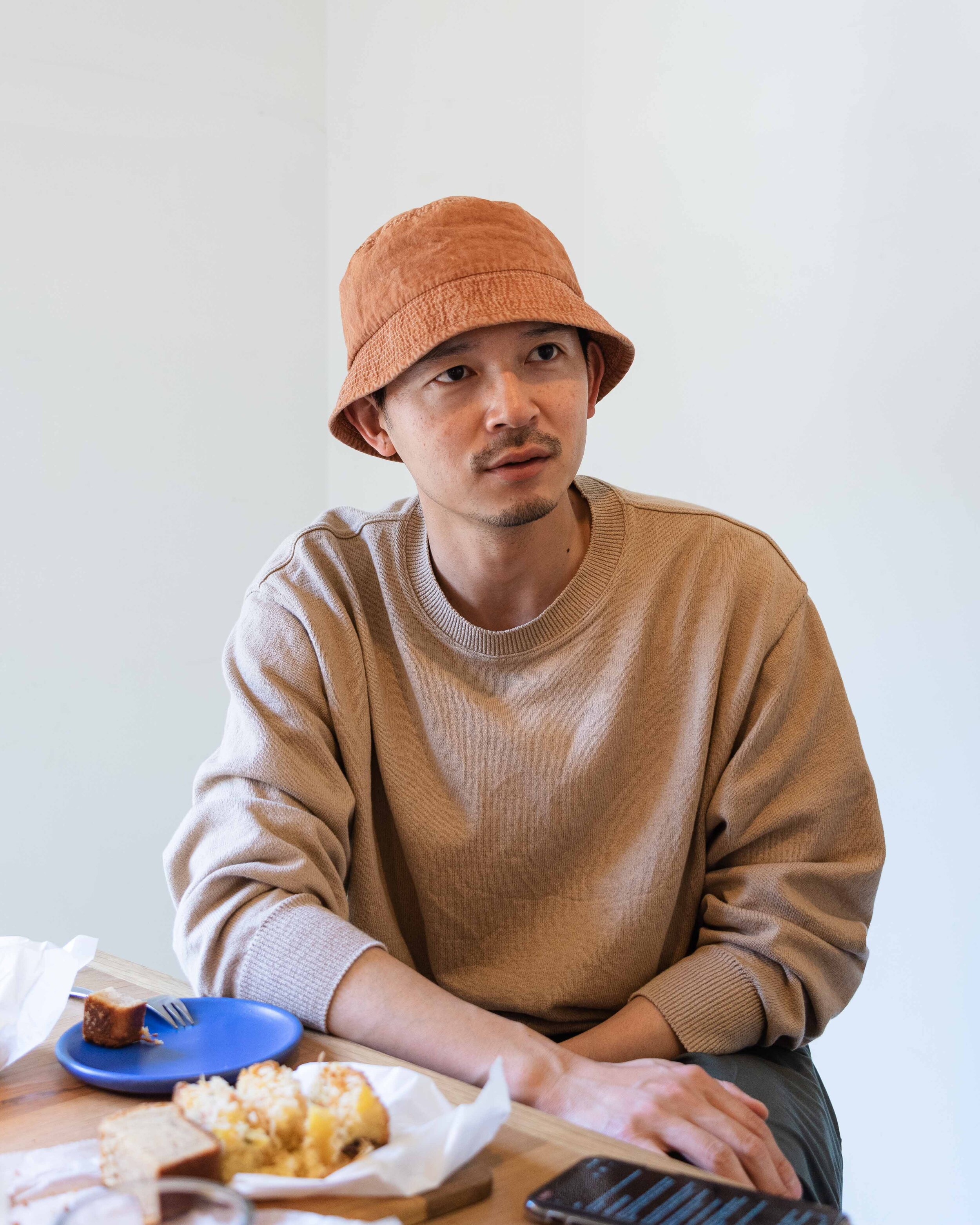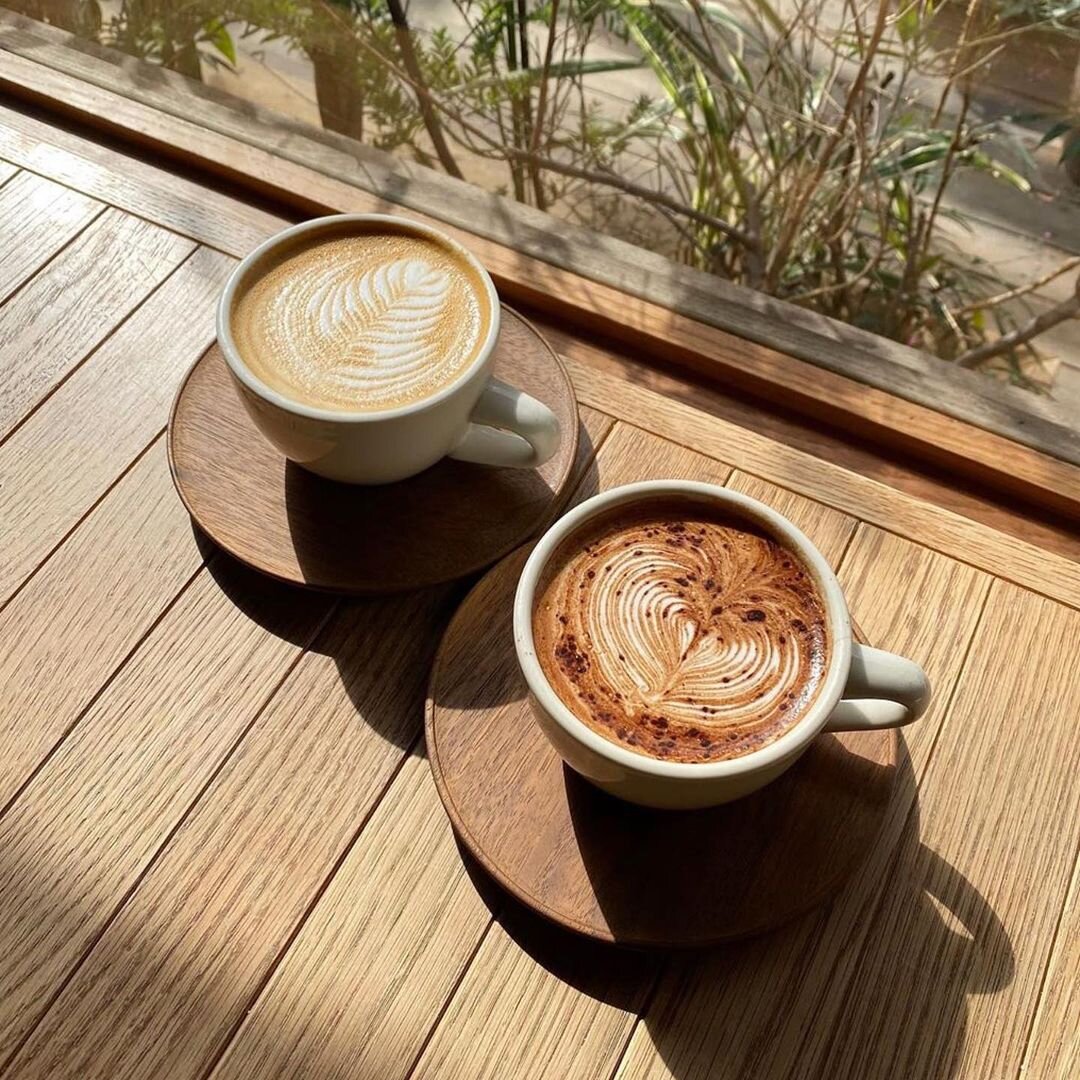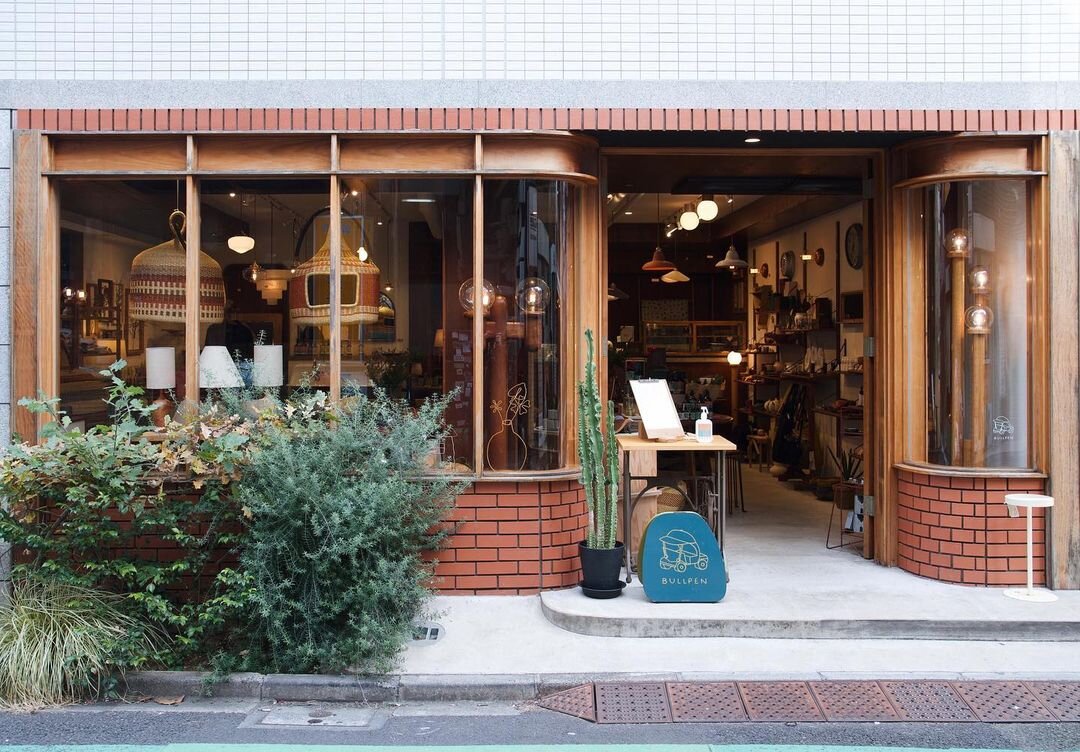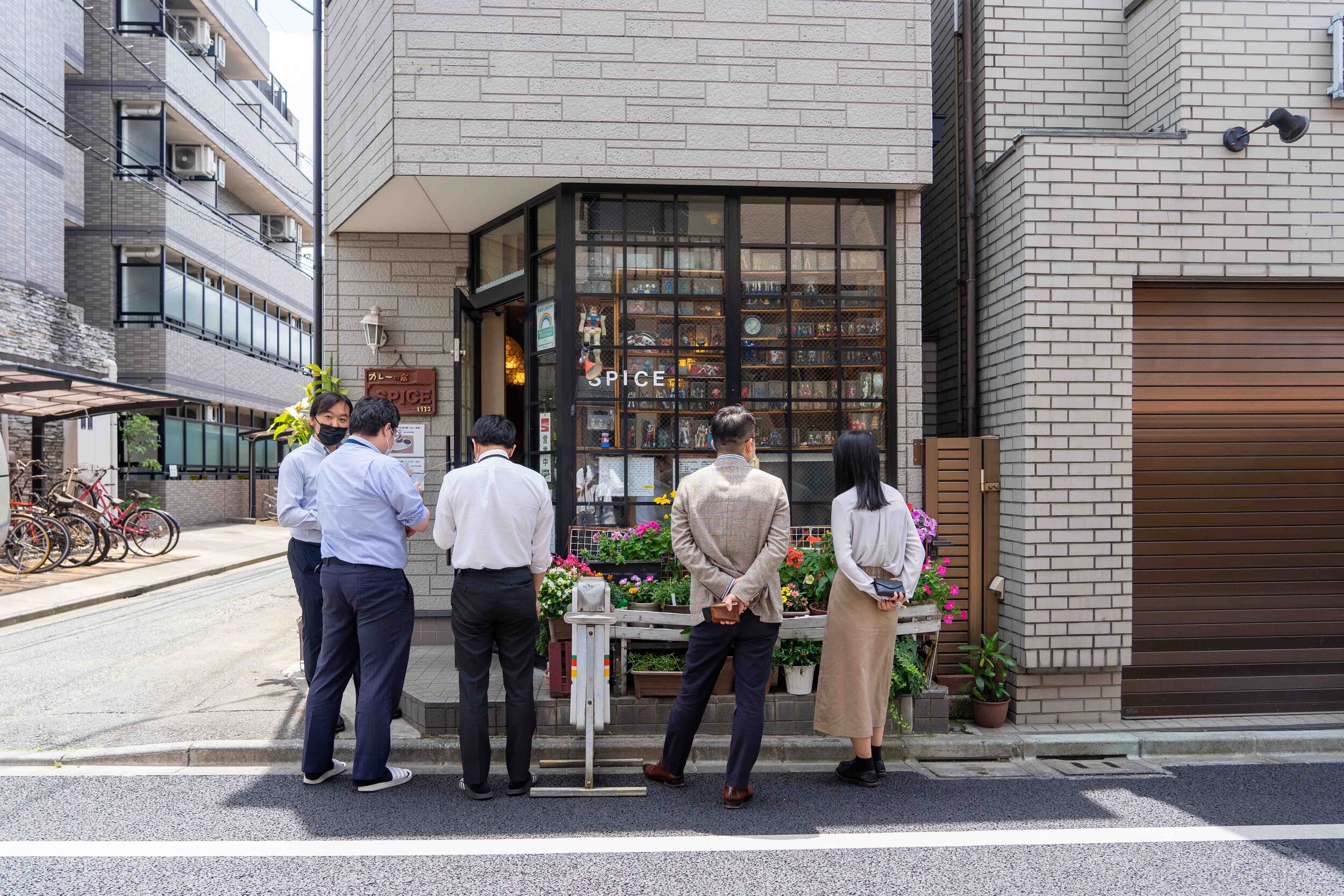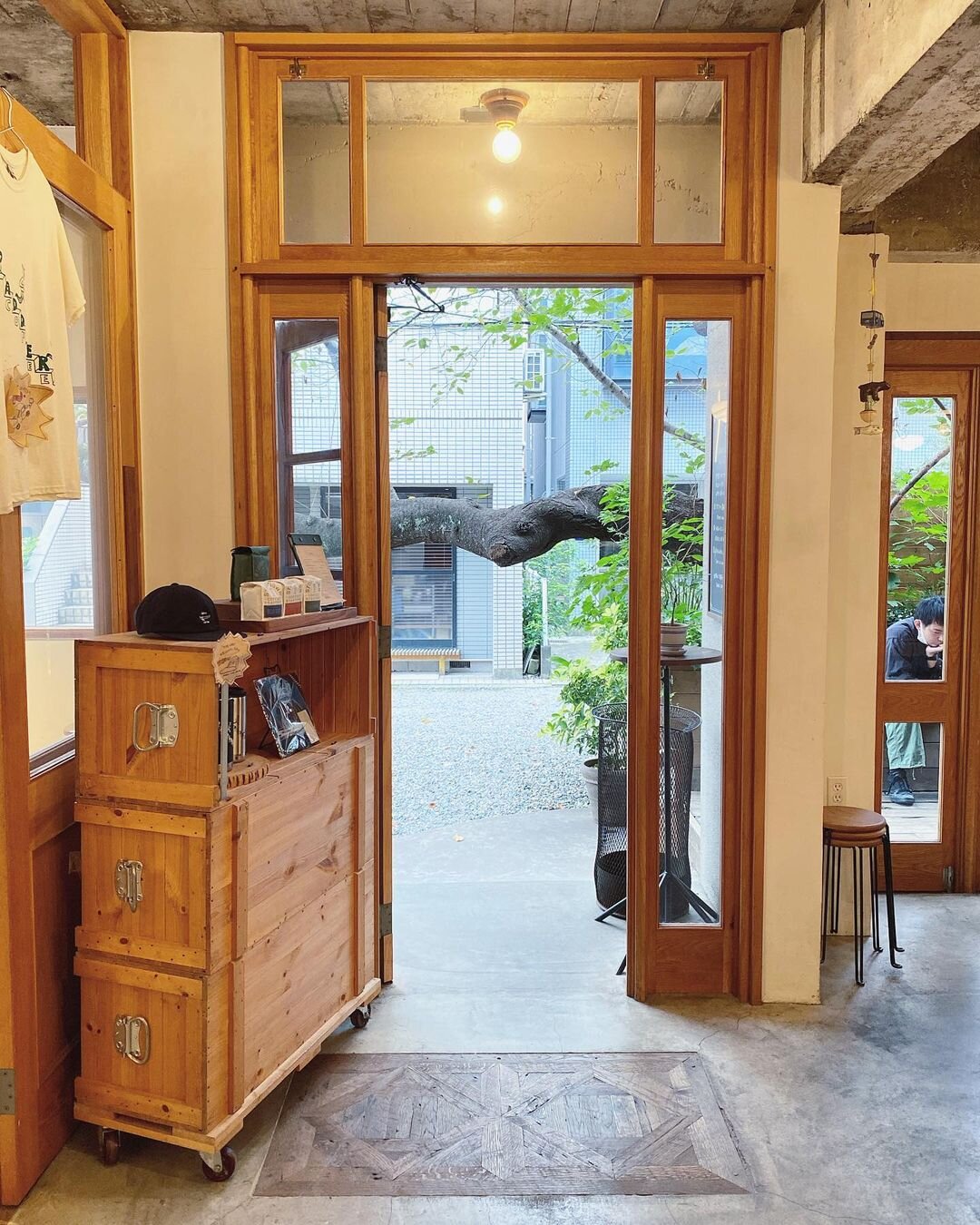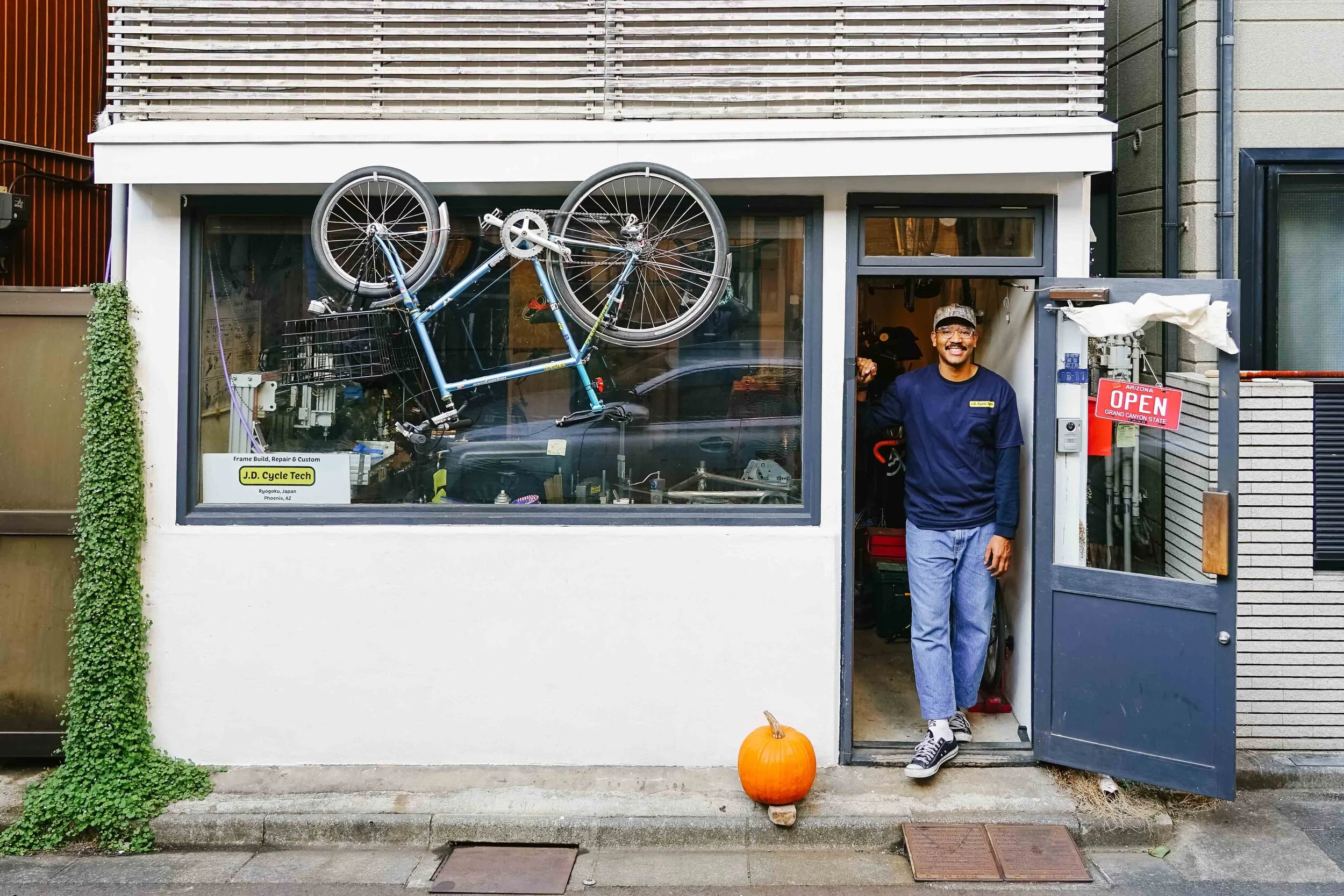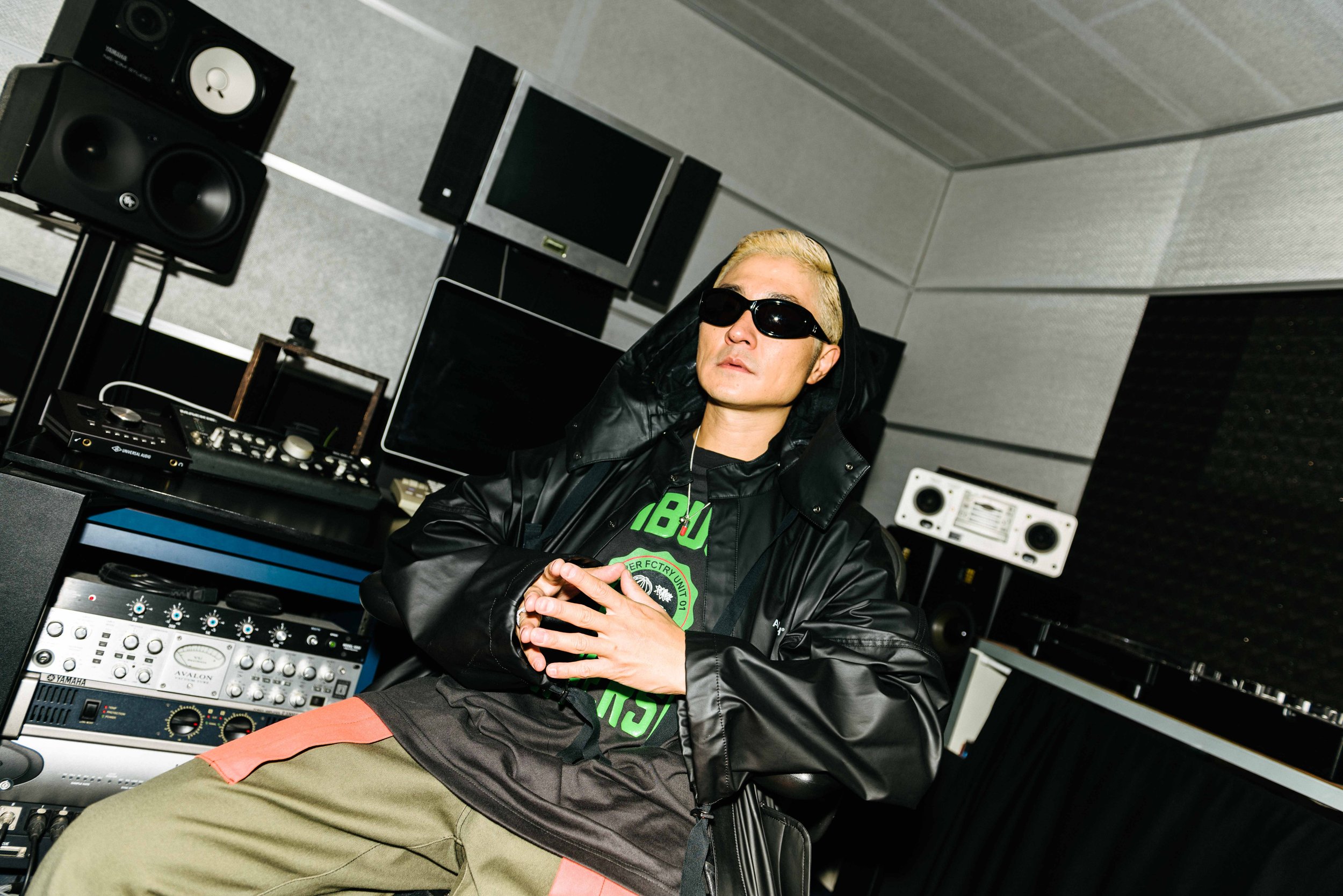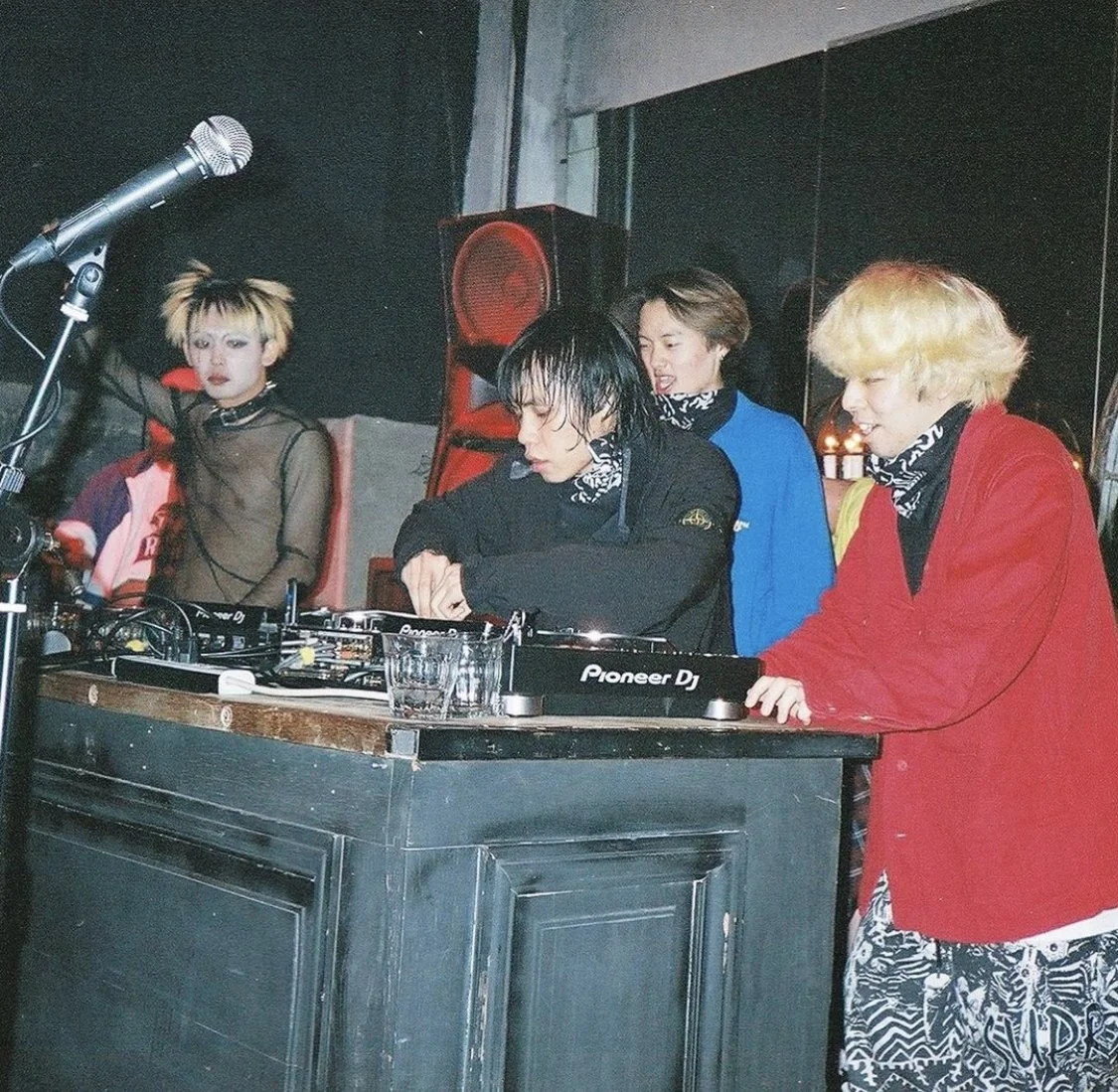TOKYO COFFEE AND SHOTENGAI CULTURE: MEET DAI FROM PADDLERS COFFEE
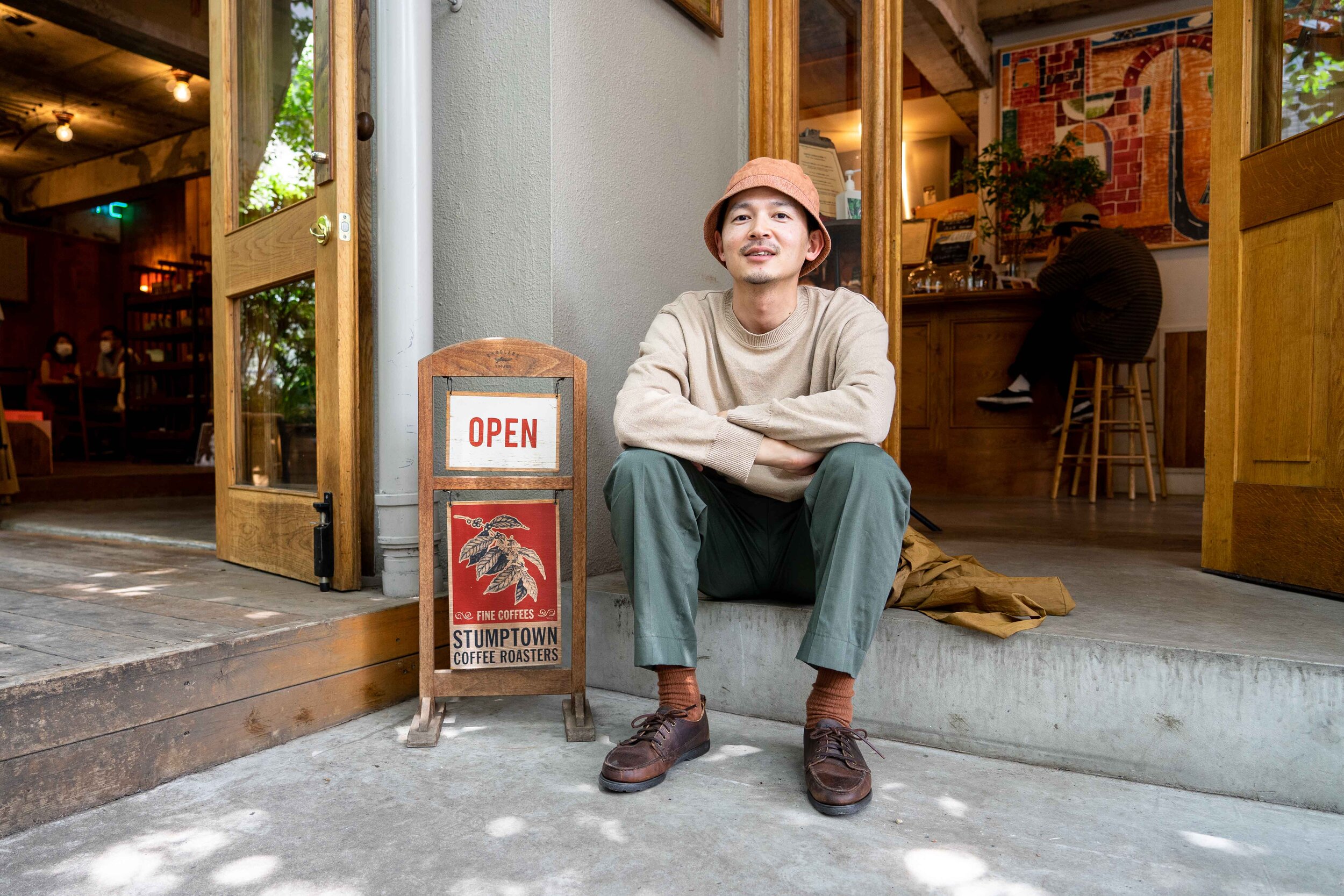
One thing which has come to define Japanese society over the last century has been rapid modernisation. For many, the perception of Japan is one of modernity and technological innovation, but this comes with a caveat: tradition is often the unintended victim of innovation and convenience.
Japan is a country which, from the outside, is known for its coexistence of modernity and age-old traditions, but to see Japan in person is to see a country experiencing a cognitive dissonance: newly-constructed skyscrapers tower over century-old national gardens, telephone wires drape over shrines that predate the telephone itself, and, in once-thriving residential communities, there is the death of the shōtengai.
Before the introduction of big business and commercial supermarkets, within most Japanese residential communities were shōtengais, a series of stores that coexisted in harmony, each specialising in a particular product or service. While some of these stores are still present today, particularly bakeries and coffee shops, convenience and a faster pace of living has put an incredible burden on the tradition of shōtengais. Younger generations are no longer familiar with a time when a shopping list required an equally long list of shops and destinations. However, within some communities there is a growing movement among residents and shop owners to rebuild Japan’s shōtengais.
Daisuke Matsushima is just such an individual. What began with his Hatagaya coffee shop, Paddlers, set in motion a series of events with revitalised Hatagaya’s shōtengai. Daisuke’s story began at the age of 15 when he left Japan for the U.S., speaking no English, and sparked what would ultimately be a lifetime of spontaneous travel. In every practice and profession that he has been involved with along the way, this nomadic approach to life has allowed him to build friendships and create bridges between Japan and the rest of the world.
While working and hitchhiking his way through South America, Japan’s disastrous 2011 earthquake brought him back home where he volunteered for months helping rebuild people’s homes and lives. It was while experiencing first-hand, a community brought together through hardship that Daisuke had the vision of creating Paddlers: a welcoming and communal space for a more globalised world. Today, Hatagaya is more diverse than it has ever been and Daisuke’s hands-on approach to the wider community has allowed his attitudes to branch out beyond Paddlers, into the local shōtengai. Through his second venture, Lou, located right outside of Broadway, Daisuke is hoping to have a similar impact on the shōtengai of his home city, Nakano.
Could you please introduce yourself?
My name is Daisuke Matsushima. I was born and raised in Nakano, Tokyo. My parents owned a jewelry shop there, it was a watch shop which my grandpa started 80 years ago. I have an older sister, she’s a chef. I grew up in Tokyo until I turned 15 then I left to study abroad. I went to the states, on the west coast: Portland, Oregon. I went there by myself with no English at all, but I was 15 so I got to meet a lot of people and learn. I was more into American culture I guess. I have been skating and playing baseball since I was a little kid. I started skating because in Nakano, on the same street I was born on, there’s a skate shop called FATBROS. Because of that shop I got into skating when I was like 13-14. So, yeah, I left when I was 15 and was there for about 7 years, I came back when I was 21 in 2007 and did whatever I could to get by.
I didn’t care what I did, as long as I had enough money to save. I didn’t know what to do with my life when I came back to Tokyo. I was working a combini night shift and, during the day, I was working a telephone, what do you call it, like a hotline? Like a taxi service, that paid me really well. So, anyway I was doing a double shift and whenever I got like ¥300,000 saved up I would just quit and go traveling. I always loved to travel.
Working was whatever to me, so I just did whatever I could do to get money and when I got money I’d just leave. I was doing so many random jobs between 21 and 25. I was skating at the time and I couldn't get better than a certain point. I was just ok but the people around me were so good. They were pros. I wanted to go skating with them but I wasn't that good so I started filming them. I wanted to learn about editing and filming more so I entered film school for 2 years after highschool. I came back and worked for this internet news company where I was a videographer. I did that for 3 years and I quit.
I always wanted to travel the whole world so I decided to leave for 2 years starting in 2010. I left Japan and went back to Portland, where I used to live. From there I was everywhere, Brazil, Cuba, but after about a year, while I was in Brazil, the earthquake happened in 2011; the huge earthquake in the north of Japan.
I knew I should go back and help so I came back and went straight there. I met so many people who wanted to help by doing whatever they could. I met this guy, Kenji Omori-kun, and we became close friends. We got this place together up there. We were just volunteering every day. After like 4 or 5 months everything got settled, people had homes again and I was basically broke, so I needed to get a job. For a year and a half I’d had no job, so I decided it was time to work again, but before that I wanted to go camping with Kenji and he said “Oh, I’m gonna bring my best friend, we grew up together”.
We went camping in Nagano prefecture and he brought Take, who is my partner now. Kenji had told me “Hey, this guy, my friend, my best friend, he’s now working in the coffee industry” and after the earthquake I had this idea of wanting to make a space where people can gather. I was in Portland for 7 years and I always went to coffee shops to meet up with friends when I was bored or whatever. Coffee shops were my go-to spot. It doesn't happen often here [Tokyo] but when I was in Portland I became friends with staff. In Tokyo I thought maybe there aren't that many places where anyone can gather and meet people like that. I thought, because I met this guy Take, maybe I can do a coffee shop; he can make coffee, and maybe I can come up with a cool space. That's how everything started: Paddlers coffee.
So, without any experience in the coffee industry, how did you go about establishing Paddlers?
Before starting a coffee shop I decided to go check out a coffee farm again since I’d been traveling for that year through central and South America. So, I worked as a carpenter for a month to save up money, literally just enough for airfare, like ¥200,000. I grabbed the cash, bought the ticket and left for 3 weeks. I was hitchhiking and decided to go to Guatemala for a month with no real plan. I met this random dude who said he was going to a coffee farm and I was like “really? Can I join you?” So, I was basically hitchhiking the whole trip. It was fun.
On the way back I wanted to stop in Portland again. My skater friend who I grew up with was working for Stumptown Coffee and I never worked in any coffee shop or food industry so I just wanted to learn how they roast and how they run a coffee business. Anyway I went to visit my friend again and said “So, I want to open a coffee shop in Tokyo and wondered how you do it?” and he was like “maybe you should use our Stumptown coffee. No one uses it, it’s such a cool idea”. Back then Stumptown was a little company but now it's huge. Anyway, he talked to his boss about it and I had a coffee meeting with him. Without any experience or even a name for the coffee shop he said “that sounds cool, let’s do it”. So, I got Stumptown in Tokyo and I came back and told Take about it and he was like “holy shit, are you serious? That's insane. That’s like bringing Blue Bottle over”.
Stumptown was huge in the coffee industry, but no one had an account outside of the U.S., but because of my friend I was so lucky to get an account. Take and I were talking in Fuglen, Fuglen coffee shop, and he was like “that’s insane….we shouldn’t talk about this here.” haha So, at the time Take was working for Streamer coffee, he was one of the members that started it. He asked me if I wanted to do a coffee shop together, as partners. At first I really wasn't sure if that was something I wanted to do with someone else but we decided to do it together.
I had this coffee but we didn't have money or any connections so basically for the first 6 months I had a shoebox full of coffee and I was sharing it on my personal Facebook saying “Hey, I have this coffee from Portland nobody knows.” Lots of my friends were actually helping out and buying it for like ¥1,000 which, now that I think about it, didn’t make any money.
I was doing that for 6 months looking for an opportunity and we happened to meet this guy who runs a bakery and restaurant in Sangubashi called La Saison / Tairu Bakery. They share a space, it's really cool, and they offered me their space to do a coffee stand, like a cool pop-up. Take and I decided to open up as just a pop-up stand, like pour-over coffee. We didn’t even have lattes, just black coffee. That’s how we started it. We didn’t have any money. I literally had ¥3,800 in my bank account. The owner of the restaurant and bakery were cool but they didn’t really know us. We had a mutual friend but we were just some nobodies. So, their condition was to do the pop-up for just one year and to pay rent up front, they wanted us to pay the whole thing up front, which was like ¥500,000, because they didn't know if we were gonna be successful or not.
So I asked my dad before we opened the Sangubashi pop-up, I said “we might be able to do a pop-up and have an actual coffee shop, but they’re asking me for ¥500,000 at the start” and he’s like “no way, you should do your own thing.” So, my dad didn’t help me at all. I asked my friend from junior high school, he was working for a big bank then, I was like “maybe, if you want, you could help me out loaning me some money” and he was like “sure, how much do you need?” I told him and he said “OK, I’ll give you ¥1,500,000” I was like “holy shit, really?” No interest at all. We grew up together, same baseball team, and he just loaned me ¥1,500,000. We, of course, paid him back already. That’s how we started. We opened on April 4th 2013.
We did that for 2 years, 1 year there and 1 year in Shibuya, still just a pop-up, then we found this property; I saw the sakura outside and thought “this is amazing”. We didn’t want to get this huge space though, we wanted something tiny, but because I grew up in a shōtengai in Nakano and my dad was a member of the shōtengai association, I always wanted to open my own coffee shop in a shōtengai. Right now, Nishihara is pretty popular, but 6 years ago when we first opened it was dead, there was no one. We were gonna share this space with a chef, so he can do a restaurant type of thing and we can do coffee, but this guy didn't want to do it at the last minute. We didn’t know how we were gonna do this. We were so scared and wondering if people would come. We opened on April 4th 2015, exactly 2 years after we started the Sangubashi pop-up and on the first day at Paddlers 500 people came.
Can you explain the concept of a shōtengai (商店街) for our international readers?
Shōten (商店) means a store, a small store. Gai (街) means a city, like machi, a city. A shōtengai is like a workers association kind of thing. Traditionally, all these small cities in Japan have a shōtengai, but shōtengais are basically dying because a lot of big corporations are opening up huge shops. The shōtengai I grew up in, in Nakano, had like a little shop which only sold tofu or one which only sold chicken. Like small family run businesses, all gathered together. When I was a little kid, my mum used to give me a list of things to buy, like a grocery list, but she was like “this chicken? Go here. These eggs? Go here.” If you go to a supermarket you can get everything in one spot, but because there were so many small businesses I was told to go to certain shops for certain things. That’s shōtengai. For the owner, the landlord, it’s easier to deal with a big company, like 7/11, than a small business. The 7/11 here (hatagaya) closed and reopened, but that 7/11 was supposed to be this small organic grocery store my friend owns but because of a contract issue, at the very very last minute… So, basically, for most owners it is easier to just deal with big companies. Sorry, what was the question again?
How would you characterise Hatagaya and the Nishihara shōtengai? What's the vibe?
Umm, this is more like a neighbourhood area. It’s definitely not for the tourists, we have so many customers that are local. It’s hard to explain. The difference with Nakano is big, Nakano is insanely packed, like the house I grew up in, you can’t even drive in front of it because it's so narrow. There are small alleyways and so many shops next to each other. We are between a sushi restaurant and a bento restaurant and each building is basically touching.
When you moved here you said there wasn’t much in the neighbourhood. Did you come with the idea of building a shōtengai?
Yeah, there wasn’t. A bakery was here, Jicca restaurant was here but it wasn't like it is today. I didn’t really have a certain idea, but I wanted to build something. I didn’t aim for it or take over this shōtengai or anything. Instead of just seeing some random guy do random things, I had many friends that were looking for property, so I told a bunch of landlords at the shōtengai association “if you see any property open please let me know before you put it on the market” and they actually did. So I’d hear “this guy’s quitting, this shop is closing” and thought maybe I can introduce some cool people. I don’t think everybody is happy about it but I think most people are pretty stoked about this city, this whole area and how it's changing.
The association doesn’t meet now, because of corona, but we used to meet once a month with all the store owners. So, after we opened Paddlers we encouraged so many people to come here, like Ella Records, the flower shop (ラベイユ四季), Bullpen, Flow, Paletown, all these small shops. Like Jeremy, Freeman, his wife, Maiko-san and I had a mutual friend and when that liquor store was closing I thought maybe I can introduce somebody cool. The owner of the building was like “yeah, I’ll just let you figure it out”. I introduced the landlord to 3 different guys, Maiko-san, an Italian guy and another BBQ guy, in the end the owner chose Freeman. So that’s how this all kind of started.
So you introduced a lot of business to Hatagaya, but Paddlers is the only one you yourself own?
So, I started Bullpen, you know, the furniture shop. When that property opened I couldn't decide who I should introduce. At first I decided on Equal, the little pastry shop, but because of the property, some kind of issue with the building, they couldn't do any food business. So I was stuck thinking what I should do. Commune, the gallery guy was already into it, they wanted to do it. So, while I was stuck on this I met these 3 guys who I eventually started Bullpen with. They were all working for Acme at the time, the furniture shop in Shibuya. The 3 of them were working in the same place and were talking about “I don’t know if we can continue doing this” and I was like “Oh, I know this property if you want to do your own thing” but they’d never done it before, they were looking for a big company and and they weren’t sure how it works on your own. I was like “maybe I can help you because I have so many friends that make cool stuff, like ceramics, glasses, furniture.”
So, the first idea was to introduce these 3 guys to the property but in the end they asked me to start up with them. So, I basically got all the money, raised enough to open up a shop, got everything set up. I got the whole store’s accounts, like 10 or 20 accounts from all over the world within like 3 months, I did that whole thing and got the space set up. After a year and a half everything was moving forward and I asked them if they wanted to finish it because I never wanted to open a furniture shop. I wanted it to happen but I didn’t want ownership, so I basically gave it to them. I’m not the owner or anything like that. I help them if they need help.
commune gallery and press
〒151-0066 Tokyo, Shibuya City, Nishihara, 1 Chome−18−7 102
Click HERE for Google Maps
We want to go back with the shōtengai meetings, obviously, this meeting is super important for all the shop owners to have a shared goal, a shared vision. How important do you see it, what’s the importance of that?
Oh yeah it’s important, everytime I go and it’s an hour of talking I think “Oh that was unnecessary” because we don't really talk about anything important, it’s just random like “hey, what are you gonna do for summer?” I don’t know if it’s Japanese culture or not but it’s very important to meet occasionally and just talk. Basically just communication like “hey, let me know if you hear anyone is quitting their business, because I have a few guys that want to open up”. It’s important. Without that, we’re never gonna meet, we might meet on the street sometimes but it’s important to actually get together and kind of extend your ideas, just talk about random things. For 1 hour we’re basically talking about nothing but for me that's very important.
Nakayama fruits & Vegetables
〒151-0066 Tokyo, Shibuya City, Nishihara, 1 Chome−19−6 シオ・ハウス
Click HERE for Google Maps
So at the end even if you have this 1 hour of random talking there might be some business?
I’m not really going there for business, I just want them to think of us when anything happens.
Let's say someone here leaves, how do you convince them to get a smaller independent shop in there instead of a big business?
These guys, the property owners, they basically like me so it’s easier for them to let me in. I give them options, I’m more of a middle man. Maybe they feel safe because they know I'm not doing it for business, I'm not taking any money from them. I never want to take money from them but I convince them. Like when Jeremy did Freeman I convinced the property owner to bring down the rent because the landlord was basically averaging a lot more. So she changed the price by a lot. It’s with the community spirit in mind.
We want to highlight some shops to give people an idea of the Nishihara shōtengai.
I think the cool thing that's very unique about this shōtengai is it's not just the new shops that are here but like Nihao, the gyoza shop, they’ve been here for 30 years and they’re awesome. There are izakayas, there’s Katane bakery which has been around for like 14 years. There are some cool shops that have been here before us. We’re new for them, we’re very new. So I want to focus on the mix, that's what makes this shōtengai very special. Like the vegetable shop (中山青果店), rice shop (柴田米店). The curry shop (Spice) has been around since the 70s, maybe the 80s. That makes this shōtengai special, not just us. I just want to be in the middle because I respect those guys that have been around in business way longer than me. I always say I'm just the new guy.
shibata rice shop
〒151-0066 Tokyo, Shibuya City, Nishihara, 1 Chome−20−5 ロード西原
Click HERE for Google Maps
What do you think is next for the Hatagaya shōtengai? Are there any other businesses you want to introduce?
I’m interested in education for kids. I always think about who I should introduce, there are so many kids, like elementary schools and kindergartens around here. I see so many kids growing up and I think the environment you grow up in is very important. If you grow up coming here as a kid you probably go to a nice coffee shop on your first day. If you listen to music here you’re probably gonna grow up listening to good records. So, for me, that’s important. Kind of like a good environment for kids so maybe a little after school thing or maybe an English after school thing so kids can learn English. Business wise, though, on a personal thing, I like Udon and there are not really good udon places around here. I like tacos, street tacos, so those are 2 food options I personally want to introduce, but for the environment I think something aimed towards education for the neighbourhood because kids would love it.
You talked a lot about trying to create a certain atmosphere and environment here, could you describe the atmosphere at Paddlers?
I chose a coffee shop because I wanted to create a space where people can gather and share things. It could be something else like a bar but only at a coffee shop can everyone come every day, from little kids to grandparents. I couldn’t think of any other place where that could happen. I also thought Tokyo needed a morning culture, people always say “let’s go drinking, let’s go to an izakaya. Meet at 7pm” but instead people can say “let’s go drink at Paddlers at 8am”. I think it’s way better for you. I wanted to create a space like that statement on the board over there: all welcome. Anyone can come, do whatever you want. We don’t have Wi-Fi because I would rather see people talking instead of getting on their computer. I would rather see life, communication. I always thought I was good at connecting people.
How would you describe the Tokyo coffee scene in general?
I don’t really follow much, I know there are a lot more coffee shops here than 6 years ago when we first opened, which I think is awesome. There’s a coffee shop opening by Katana bakery. I think people are like “oh, there’s a coffee shop opening kind of near Paddlers” like it’s a bad thing but I think it's kind of cool. I think the opposite of what most people think. If there’s more coffee shops in Nishihara or this neighbourhood then people can choose. It’s not really like competition, it’s just a good community.
Other than the increase, are there any differences you've seen in coffee culture in Tokyo?
Hmm. Back then when we first started, people thought that specialty coffee at ¥500 or ¥600 was too expensive for coffee. Most Japanese people grew up with canned coffee or ¥100 coffee. McDonalds or 7/11, that’s coffee. So, this kind of coffee was very new. Now a lot more people are buying coffee beans for home brewing, I think it’s nice. There are a lot more coffee shops, better coffee, it changed a lot. My dad or my mum never used to drink this kind of acidic coffee, they used to think coffee was just rich and dark, heavy coffee, but now they know. It’s like, “oh, I need acidic”.
What would you say are the main differences between Portland and Tokyo Coffee culture?
The biggest difference is, in the states, coffee is for the neighbourhood, but here you go far for a coffee shop. When I was in Portland I didn’t go to this certain coffee shop riding a train for an hour to get there and I never wanted to line up for more than 30 mins for coffee but people from Tokyo travel far and are ready to queue up to 1 hour to get a hot dog and coffee. Cafe’s here are destination spots. I don’t know if it’s good or not. We have people come on the weekend from all over, from everywhere. Not just locals, locals don't really come on the weekends because they know it's kind of busy. Coffee shops should be for the locals. In Portland It’s definitely not the destination. If your local coffee shop is full you just go somewhere else but here people wake up and think “I wanna go to Paddlers this weekend and meet up with friends.”
Do you think the coffee culture and your experiences in Portland changed how you approached creating Paddlers?
Yeah, exactly. That was the whole idea of the coffee shop and how people communicate. I got influenced by Portland, I was there from the age of 15 to 21, that’s a big chunk of your life. I grew up there, and became a real optimist, thinking positive. I used to think like “oh, if I do this, this guy or someone might think a certain way about it”. I was always thinking about what others might think of me instead of what I wanted to do. In Japan a lot of people are like that. You know (空気を読む) read the air? But I changed, I think my personality changed a lot going out there. It’s helping me right now to run this spot. We don’t have any work manual or anything but I believe my employees see me and this kind of vibe, this positive vibe, I always joke about not bringing negative vibes in here. So that’s the whole idea. I believe this coffee, not many people come for the best coffee in Tokyo. I think people come for other reasons: the music is cool, the atmosphere is cool, the staff are nice. I’d rather see that happen than focus on coffee even though this is very special coffee. I don’t even say “we’re the only one serving Stumptown in Tokyo, please enjoy”, we don’t say that because it doesn’t matter.
Every time you come to Paddlers, coffee is always served in these mugs. What’s the story behind them?
These are Shino’s. Shino was born and raised in Japan but she’s been living in New York for 20-25 years now. I randomly found her mug in my friend's shop in Portland like 7 or 8 years ago, long before Paddlers. I bought a few, imported them, and when I got back I looked on the back and saw the name Shino Takeda and thought “oh, a Japanese girl?” So, I searched for her and found a little website. Everything was written in English so I thought maybe she was Japanese-American. I wrote to her just wanting to tell her I fell in love with her mugs that I found in Portland so I was like “Hey, Shino, I’m Daisuke im from Japan and I randomly found your cup. Please let me know if you have any dealers who carry your stuff in Tokyo” and she wrote back in Japanese like “I can speak Japanese. I only just started so I don’t have any accounts in Tokyo or in Japan”.
I told her, “if I ever open up my own coffee shop would you make mugs for me?” and she said “yeah of course. I have a studio in Brooklyn, you should come visit if you can”. I actually left the next month to see her. Because of that we have this special relationship, she’s insanely popular right now but still she only keeps these here, just for us. I know she has so many offers to make these. As a business, she should do it. She can sell these online quickly for like $100 each, but she only sells to us. She has a lot of, how you say, loyalty? So, I feel very very special. That’s the story.
Every year, every Christmas, we invite her. We buy her a ticket. We invite her to do a pop-up here, but last year we couldn't do it. Hopefully this Christmas we can do it again because people are waiting for it. Like you said, everytime you come, if you order today’s coffee, we serve it in Shino’s cup. I wanted to kind of make a fresh feeling every year so we get new ones but I dont want to throw these away. Instead I got the idea that we should do a pop-up and sell these second-hand because our regulars know it and are like “I want this cup”. That’s how we started doing events here. I couldn’t decide how we’d use this space when we first opened.
Like I told you, this space is way too big for a coffee shop, and the rent is pretty high. I originally planned on doing a shared office kind of thing, you can use this space, you pay a certain amount and you can use it however you want but that didn’t work. So you know the vintage shop, Paletown? He was going to the U.S. on a buying trip and was gonna close for 2 weeks so I said instead of closing the shop he should bring everything here and while he’s gone we might be able to sell it. We did that and lots of things sold. We realised we had an opportunity, we can use this as an event space, like a ceramic event, art event, and just by word of mouth people were like “can we do events here?” We don't really care if someone is famous or whatever, as long as we think it sounds fun.
So you do pop-ups here every weekend? How do you tend to choose what businesses or pop-ups to do?
We don’t really choose, it’s just whatever businesses want to do it. I think maybe 1 or 2 times we didn't go ahead with one because it was way too personal and we didn't think our customers would enjoy it. Or it was something like an art show which had very sexual images and, because it was like naked girls and we have kids around, we didn’t do it. Maybe I like it, but none of our customers would.
That’s really nice, especially as a business which started as a pop-up, to then be supporting other pop-ups.
Yeah, like one of our staff did a pop-up last weekend for a t-shirt company he started. These striped shirts, and he sold everything, like 80 shirts. That actually helps us too because we take cuts.
There’s always great music playing here. We wondered what your perfect Paddlers soundtrack would be?
I always think of a positive groove. I grew up listening to Black music, my first inspiration was Gil Scott-Heron. You know JBS? Jazz Blues Soul? That was another huge inspiration. Everything was copied from JBS, but he knows that. I told him “I like this idea, can I do this?” and he said “of course”. He actually brought me like 100 records when we opened, just rare jazz and original records. I like all kinds of music, my dad was a huge fan of The Beatles. Every time I got into the car he’d play The Beatles. I was so sick of it but now that I think of it, it was kind of cool. I grew up listening to The Beatles. As a teenager I grew up listening to hip-hop, rock music and all that. I like all the genres.
Now I like funk or soul music, like Gil Scott-Heron. I don’t know, there might be something in common with whatever I like, but I can’t really explain it; something happy. When you're drinking coffee you don't want to be sad. When it's raining maybe you’ll like mellow music, or some funk when it’s slow. I personally like more house music but that doesn’t really fit here. Speaking of records, you know Big Love Records? One of the best record shops, he chooses records for me because he comes here every day. Big Love Records? Is that in Harajuku? Yeah, *gestures* actually that guy’s the owner.
At the minute you're working on a new business, can you explain that?
Yeah it’s really cool. So, I grew up in Nakano and my grandpa started a watch business there 80 years ago. My dad had the business for 40 years but he retired so that whole building was empty. At first we were gonna rent because it’s very central for Nakano. You know Nakano Broadway? It’s right there. But instead we decided to open Paddlers 2. It’s a 3 story building so the 1st floor will be Paddlers 2, but it’s gonna be called a different name, and the 2nd floor and 3rd floor is gonna be a huge event space where you can stay, like a huge AirBnB. A 1 room hotel with an event space.
So what was the inspiration for deciding to move to Nakano?
Well I grew up there but I didn't think these guys or my partner, Take, would be interested in doing business in Nakano because it’s totally different: it’s chaos. There’s so much chaos but they were all like “let's do it , it's gonna be fun, the city is crazy”. You know Lou Courtney? This album, ‘I’m in Need of Love’? I love this record and I really love this cover so my inspiration for Paddlers 2 was this photo. We decided to have our new shop named Lou. We’re gonna have food made by my sister. I don’t know if you’ve been to Path in Yoyogi Hachiman, it’s a french-style breakfast spot, it’s pretty amazing and she was a chef there.
So you talked about how when you grew up in Nakano there was a shōtengai, does that shōtengai still exist?
Not really, there are some small businesses left but definitely less. That’s why I wanted to make it happen again. Maybe this coffee shop will change something for the community in Nakano.
So you’re hoping for the same impact in Nakano that you’ve had in Hatagaya?
Hopefully, yeah. My grandpa built it, then my mum and dad owned it. I’ll be like the 3rd generation with my sister. I think it’ll be cool. I’ve always wanted to have a place where people can stay. That was always my dream because I love having guests over, especially from overseas. I really want people to stay so I’m basically building my dream bedroom, like I kind of wish this was my bedroom. You guys should come when it’s done. It should open within a month. We can have a party. In this neighbourhood you can’t really do that, but in Nakano you can be as loud as possible. We have a huge patio, the rooftop, it’s pretty amazing.
You said Nakano is chaotic, is there a lot more going on there?
Yeah, it’s my definition of Tokyo.
We love the story you said about your mum writing down the shopping list. Right now, Japan is a convenience monster, you can go to a convenience store and get whatever you want at 2am in the morning. Do you think it is possible to convince people to go back to this kind of shopping list life?
Definitely, it’s like a lot of people love Uniqlo but a lot of people also love one-of-one handmade stuff, so you can choose. Everything is so convenient, so easy to get; I’m like the opposite, I'd rather get something no one else has. I’d rather spend my money on my friend's shop than 7/11. Tokyo is huge so this kind of business can exist because people choose us instead of going to 7/11 right on the corner where they sell coffee 5 times cheaper than us. They sell their coffee for ¥100. A lot of people just want to support and spend money, I feel the same way when I shop. Like I don't just go to my friends shop to say “hi”, I go to spend money, to buy something.
Like Big Love Records, if you enter there’s a sign that says you have to buy something, otherwise you can't come in. So, I go there when I want to buy records, it’s easy, it’s simple. Like no one just comes here to say “hi” and then leave. Basically to me it's like an entrance fee, a ¥500 entrance fee so you can choose whatever drink you want and hang out for an hour. It’s an entrance fee, so I want to have a space as comfortable as possible: the music, the bathroom is clean, the nature. That’s my job, to have this place always fresh, clean and comfortable.
Is there anything you want to give as advice to our readers, maybe to the next generation? Any last words of wisdom from Dai you want to share?
Just come through, that’s everything. People are busy, you know, but everyone is always busy. Coming here at 8am, it kind of makes your day. It starts better than anything else, that little thing will make your day brighter, I think.
You've been travelling so much, you hustle hard, get cash and make some experiences that have really influenced the start of Paddlers. Anything from your travels?
Yeah, all I want to say is just right now, because of Corona, you can't really go travelling, but don't be scared, don’t judge. Basically seeing is believing, we’re living in such a convenient world, so much information is so easy to get but it's never gonna be like seeing or experiencing something yourself. Compared to what you see on your phone, even just meeting like this instead of a zoom meeting, it’s so different. So we’re that kind of place. Everyone has the opportunity, an equal opportunity to meet and feel something if you want and we’re providing the space here at Paddlers. We’re just the middle man. I always think “this guy should meet this guy”, I love doing that kind of thing. I don't get anything out of it, I just like connecting people, that's my whole goal.
That's what I want this whole place to be. It’s not just drinking good coffee, you get something else out of it. So I don’t know if that's the message for the next generation but just come and talk to me. I kind of wanted this to be like a tourist information place, like if you want this kind of food I can recommend somewhere, maybe I can help you get a reservation. When I was in Portland a lot of people helped me out “oh it's your first time in Portland, you should go there, you should meet my friend” I want to do the same thing for people not from Tokyo, that's my job, I don't really make coffee, I just go and talk to people.
So there you have it - next time you're in Tokyo make sure to hit up Dai and ask him for his favourite spots for the most local tokyo experience!
Words by Aku Owaka-Haigh
Interview by Aku Owaka-Haigh and Natsuki Ludwig
Imagery by Natsuki Ludwig
Layout by Koko Bond-Razak




